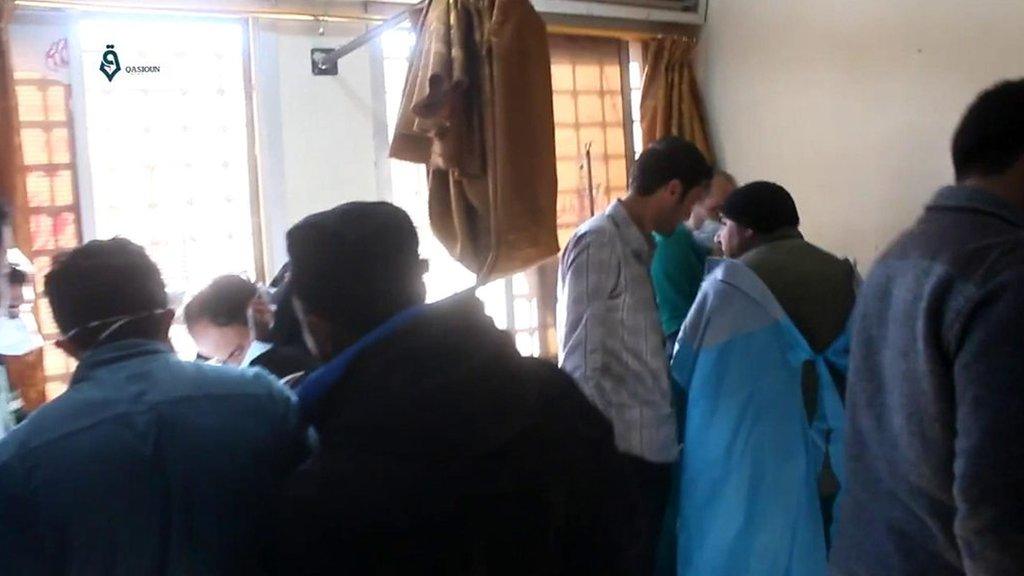Media outrage at Syria chemical attack
- Published
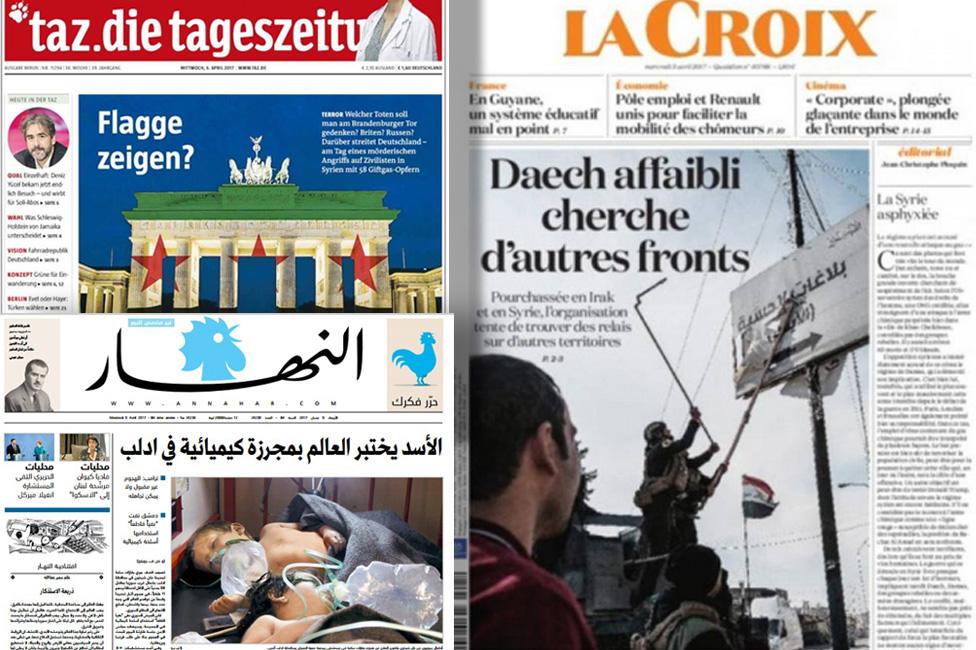
Papers around the world condemned the chemical attack
The suspected chemical attack in Syria dominates the Arabic media, with many commentators wondering whether President Bashar al-Assad is testing the new US administration over chemical weapons as he did with President Obama's "red line" in 2013.
London's Al-Hayat, external certainly sees the "chemical massacre as a test for President Trump", in particular as he recently said his priority was fighting the Islamic State group rather than removing President Assad from power.
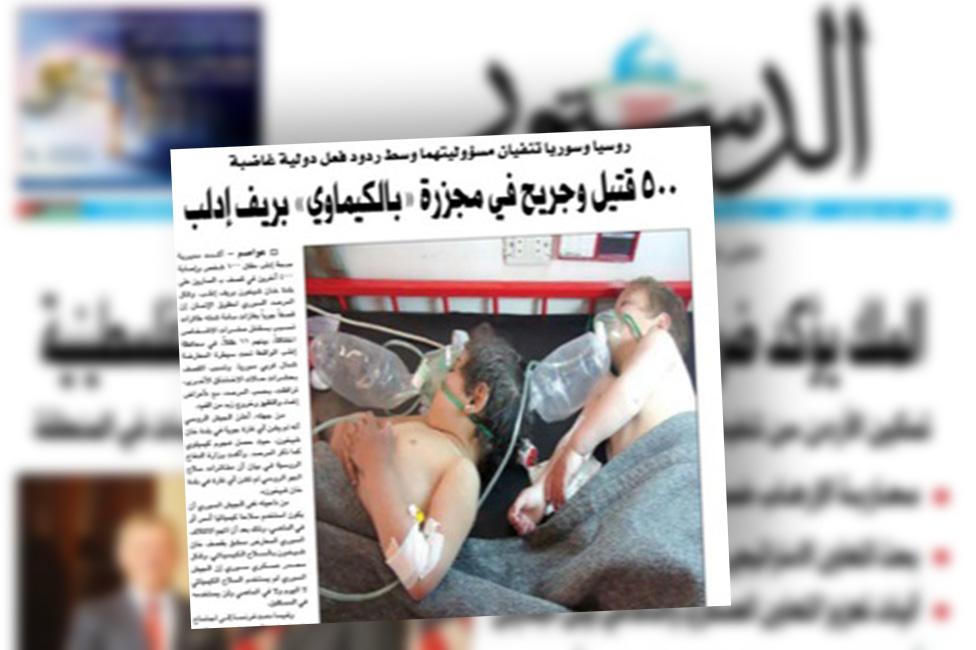
"500 killed and injured in ‘chemical’ massacre in Idlib countryside" says Jordanian paper Al-Dustour
The Arab nationalist London daily Al-Quds al-Arabi, external describes the "return of extermination by poison gas" as an "Assad reply to Trump's greetings". It says the attack shows "the Assad regime's increased confidence in regaining its position in the new global system".
In neighbouring Lebanon, Al-Mustaqbal, external denounces the Syrian president as "Chemical Bashar", and draws parallels with the 2013 chemical attack in eastern Ghouta near Damascus.
"He bets this new crime will go unpunished like the massacre committed in Ghouta, when the conscience of the world was satisfied with turning pale and condemning it before falling asleep in the face of one of the worst humanitarian tragedies in history".
But Lebanon's Al-Akhbar, external, which tends to be less critical of the Syrian government, expects other Western countries to use the incident to try to draw President Trump back into the anti-Assad camp. It is a "golden opportunity to recharge the Western axis against any settlement with Moscow and the Syrian government, in the face of the change recently shown by the White House over the fate of the Syrian president", the paper says.
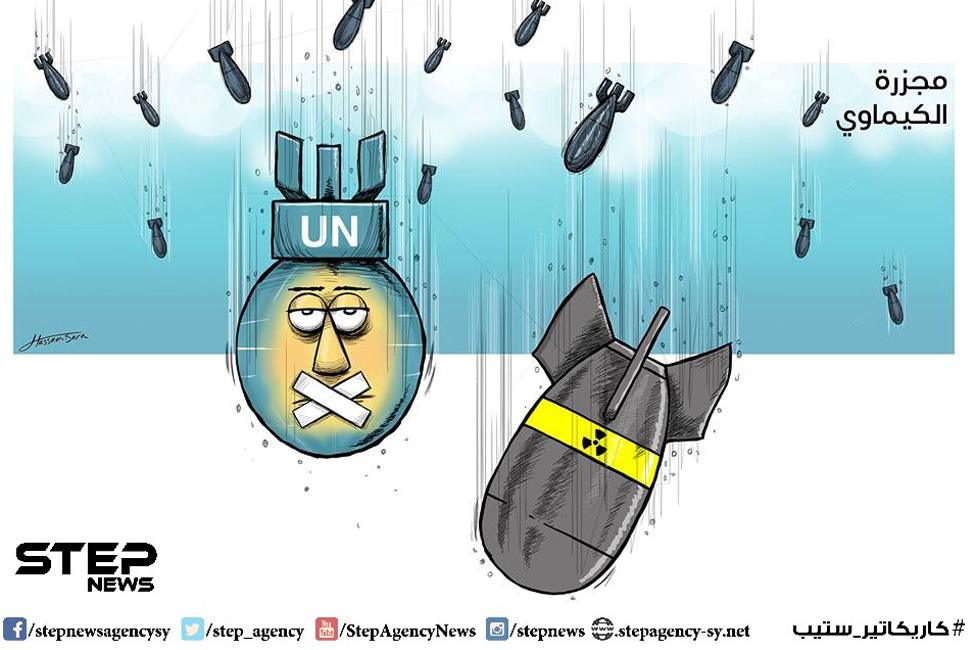
'Chemical massacre' says this cartoon published by the Syrian opposition Step news agency
On social media, supporters of the Syrian opposition have been promoting the Arabic hashtags #Idlib, #Khan_Sheikhoun and #Chemical_massacre and sharing videos, images and information about the attack.
'Killers'
Turkish pro-government and opposition TV channels have united in condemning the attack as a crime against humanity.
Independent FoxTV, external asks how Turkey will now deal with the Syrian peace talks in Kazakhstan, which it has been sponsoring with Syria's Russian and Iranian allies.
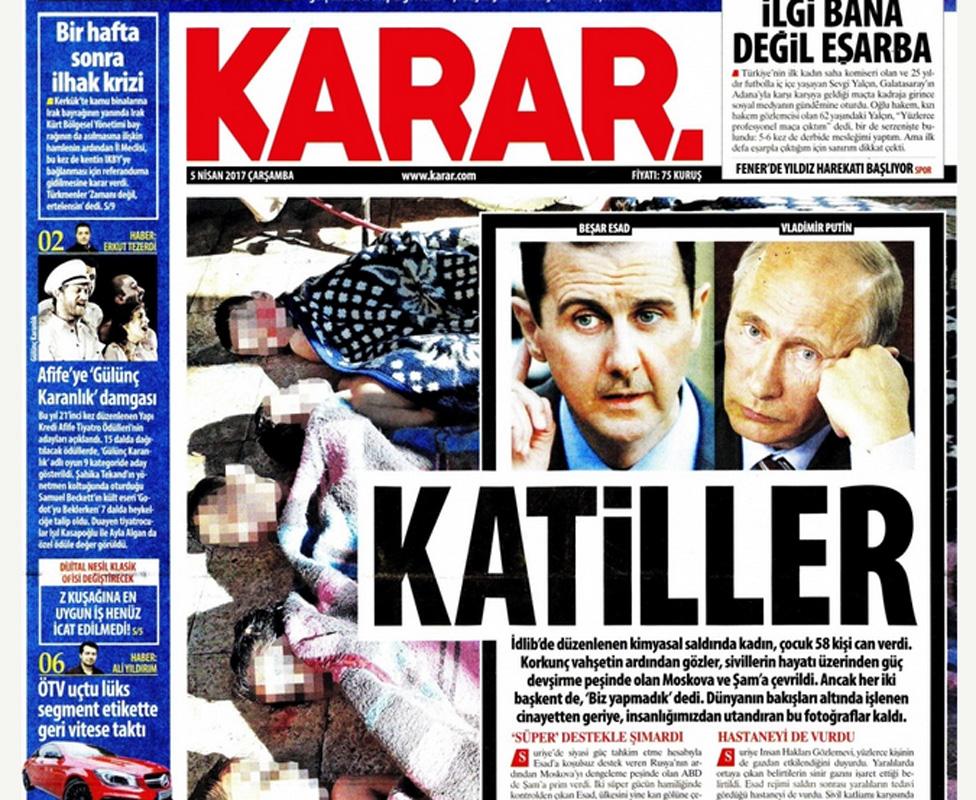
Turkish newspaper Karar dubs Presidents Assad and Putin 'Killers'
Turkish newspapers across the political spectrum also condemn Syria in the strongest terms on their front pages. The Posta, external tabloid compares the attack with Saddam Hussein's gassing of Kurds in Halabja in 1988, and pro-government Karar, external publishes photos of Presidents Assad and Putin under the headline ''Killers".
In Israel, Yediot Aharonot, external calls President Assad a "child murderer". The paper's commentator Alex Fishman says the Syrian president feels "strong enough to demonstrate his power by testing the international legitimacy he has been receiving, including from the new US administration".
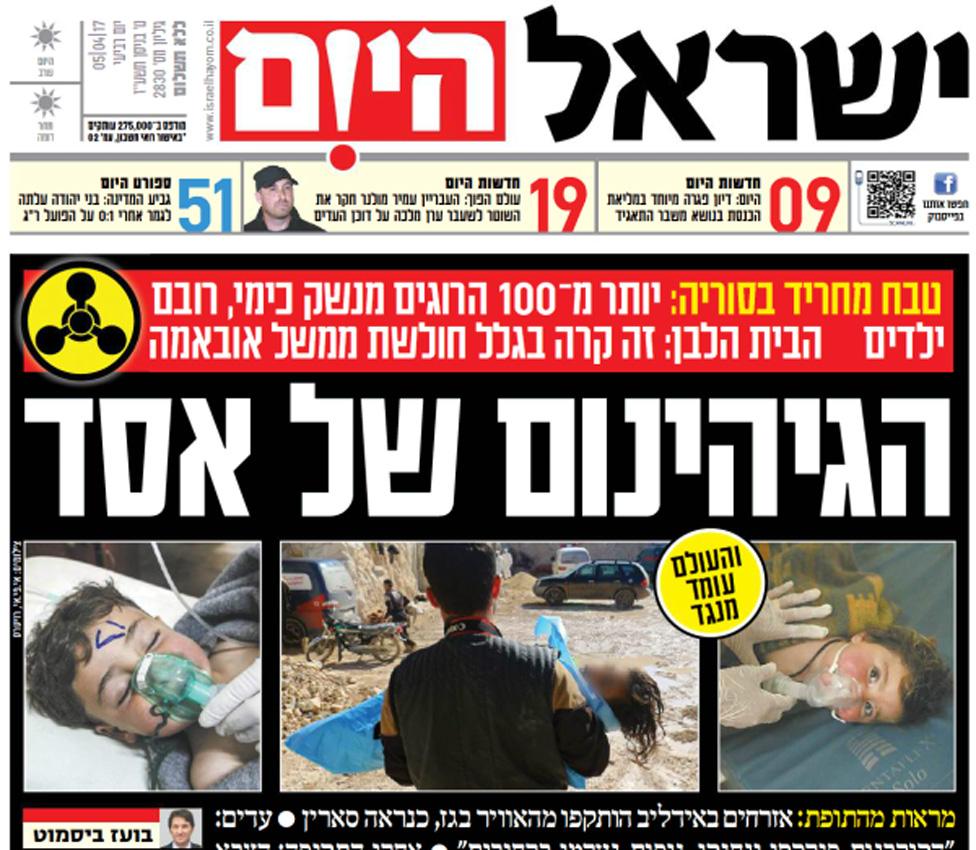
'Assad's hell' declares Israel’s Yisrael Hayom
Boaz Bismuth in the conservative freesheet Yisrael Hayom, external calls on President Trump to ensure the removal of Mr Assad. "If there is still a droplet of morality left in cynical international relations, Assad's survival makes it vanish on the wind amid the clouds of chemical gas that he releases against his own people," he writes.
The Iranian media follows the official Syrian line in denying that the Assad government used chemical weapons. Iran's state TV channels give prominence to Russian accusations that the opposition was storing poison gas in a Khan Sheikhoun warehouse - a version also promoted on Russia's pro-government TV channels.
'Licence to kill'
In Germany, Frankfurter Allgemeine Zeitung, external's international editor Klaus-Dieter Frankenberger denounces the attack as "the height of murderous cynicism".
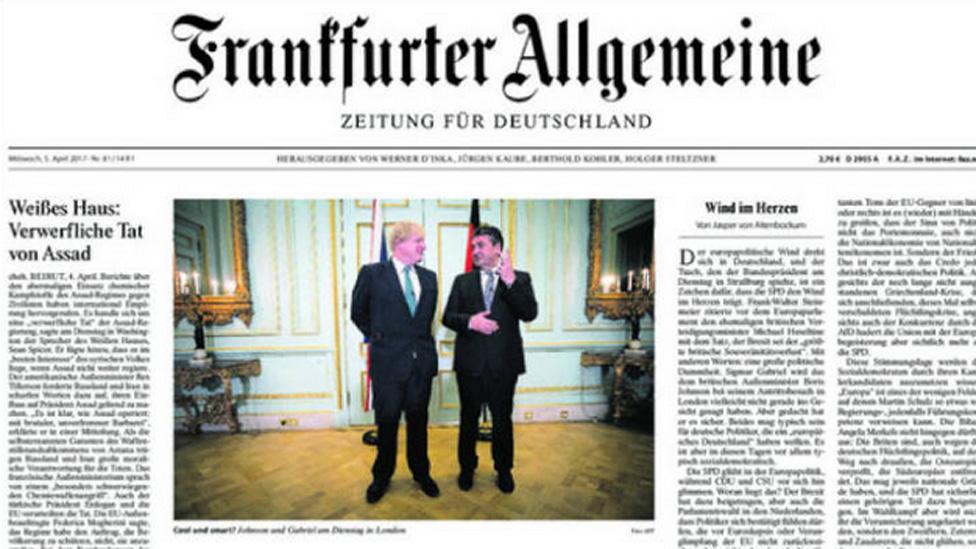
Frankfurter Allgemeine Zeitung headline quotes the White House on 'Assad’s deplorable act'
He says President Assad's strategy is "to destroy all the rebels, if possible, before any peace talks. Civilian deaths are just part of the calculation".
He expects international indignation to have no effect, given "Russia's protection" of the Syrian government.
Syria specialist Kristin Helberg tells Berlin's Tageszeitung, external that the Syria donor conference in Brussels this week must not end up financing President Assad's bombing campaigns. "The message from Brussels must be that reconstruction will only begin when the bombs stop falling. The bitter truth is that we can't rebuild Syria without rehabilitating the regime", she says.
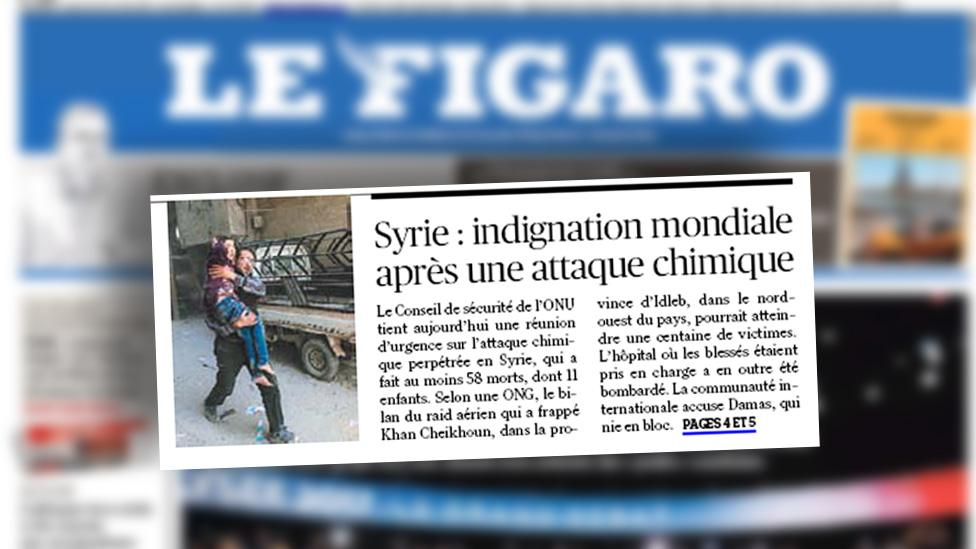
France’s Le Figaro reports “worldwide outrage” on its front page
France's Le Figaro, external reports "worldwide outrage" on its front page, while Le Monde, external showcases social media footage of the aftermath of the attack on its website.
A front-page editorial by Jean-Christophe Plonquin in the Catholic daily La Croix, external sees "Syria asphyxiated" by President Assad, whom he accuses of being "prepared to rule a field of ruins" rather than end the war.
He says the Syrian government may be "testing Donald Trump, as US failure to treat the use of chemical weapons as a 'red line' will strengthen Assad's position".
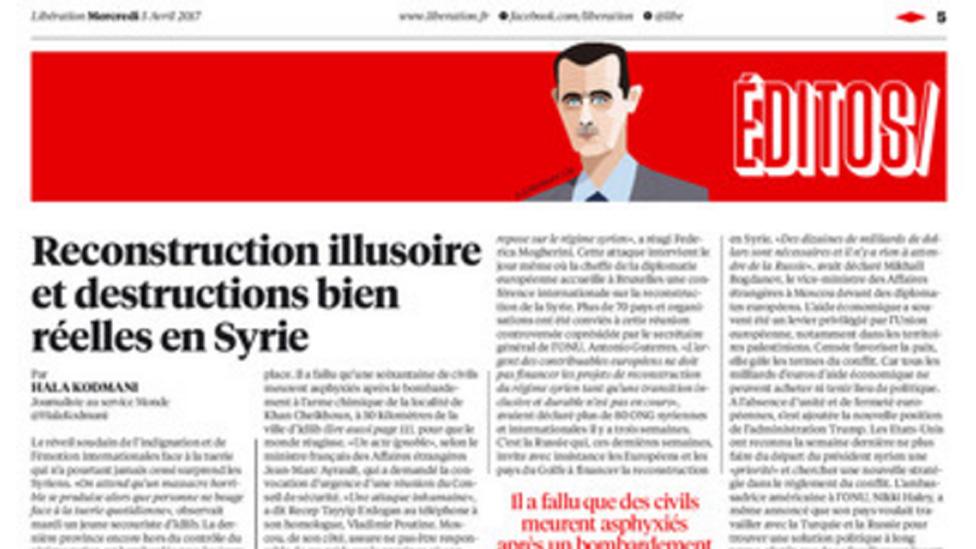
France's Liberations sees 'Illusory reconstruction and all too real destruction in Syria'
Liberation, external's Syria specialist Hala Kodmani also complains that the Brussels conference is dealing with "illusory reconstruction amid very real destruction".
She sees Russia as the main advocate of sending European Union reconstruction funds to its Syrian ally, and reminds readers that Syrian and international non-government organisations recently opposed the idea unless Syria agrees to a transition of power.
"EU aid seeks to advance peace, but freezes conflicts. Billions in aid cannot buy or replace politics," she warns, adding that US overtures to Russia and Turkey over Syria are seen by President Assad as the "renewal of his licence to kill".
BBC Monitoring reports and analyses news from TV, radio, web and print media around the world. You can follow BBC Monitoring on Twitter, external and Facebook, external.
- Published5 April 2017
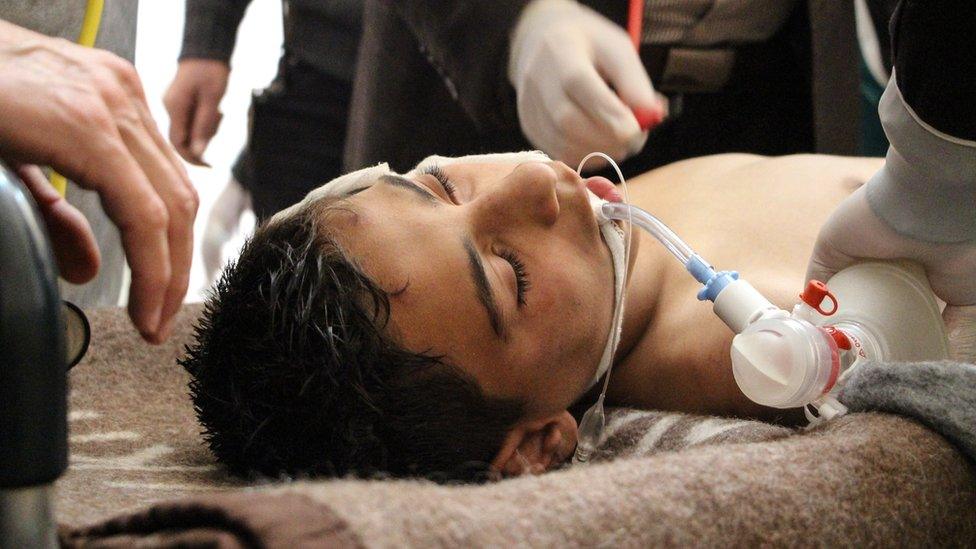
- Published4 April 2017
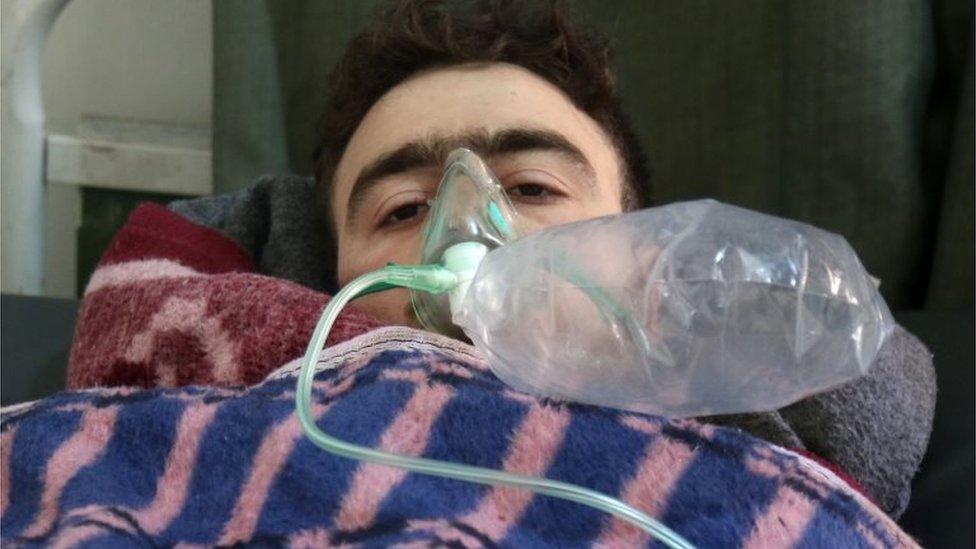
- Published4 April 2017
